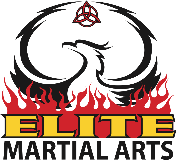In the pursuit of martial arts mastery, physical practice is only one aspect of development. Equally important—and often overlooked—is the practice of self-reflection. Self-reflection involves introspection, evaluation, and learning from one’s experiences, emotions, and interactions both inside and outside the martial arts academy. It is a powerful tool for personal growth and enhancement of training effectiveness in martial arts.
Understanding Your Strengths and Weaknesses
Self-reflection begins with a deep dive into your own strengths and weaknesses as a martial artist. Take time to assess which techniques come naturally to you and where you may struggle. This awareness helps in setting realistic goals and focusing your training efforts where they are most needed. For example, recognizing a tendency to rush during sparring can prompt you to work on patience and timing in your practice sessions.
Learning from Successes and Setbacks
Every training session, competition, or belt test offers opportunities for learning. Self-reflection involves analyzing both successes and setbacks to understand what worked well and what could be improved. Celebrate achievements, but also examine moments of challenge or defeat for valuable insights. Perhaps doing poorly at sparring reveals weaknesses in stamina or strategy, prompting you to adjust your training regimen accordingly.
Cultivating Mindfulness and Presence
Martial arts training demands a high level of focus and concentration. Practicing mindfulness—being fully present in the moment—enhances your ability to absorb instruction, refine techniques, and respond effectively during sparring or drills. Through self-reflection, you can identify distractions or mental barriers that hinder your performance and explore methods to cultivate greater mental clarity and composure.
Evaluating Progress and Setting Intentions
Regular self-reflection allows you to track your progress over time. Keep a training journal to document achievements, insights, and areas for improvement. Reviewing past entries not only provides a sense of accomplishment but also helps in setting new intentions and refining goals. Whether it’s mastering a new technique or improving flexibility, clarity gained through self-reflection guides your training focus and direction.
Nurturing Emotional Resilience and Discipline
Martial arts training can be physically and emotionally demanding. Self-reflection fosters emotional resilience by helping you recognize and manage feelings of frustration, fear, or self-doubt that may arise during challenging moments. It encourages discipline by promoting accountability to your goals and commitment to continuous improvement, even when faced with obstacles or setbacks.
Integrating Self-Reflection into Your Routine
Incorporate self-reflection into your martial arts routine by dedicating time after training sessions or competitions for introspection. Ask yourself reflective questions such as:
- What did I do well today, and how can I build on it?
- What challenges did I encounter, and what lessons can I learn from them?
- How can I better support my training partners and contribute positively to the dojo environment?
Conclusion
Self-reflection is not just a complement to martial arts training but a cornerstone of personal and skill development. By cultivating self-awareness, learning from experiences, and nurturing emotional resilience, martial artists can enhance their training effectiveness and deepen their journey towards mastery. Embrace self-reflection as a continuous practice that enriches not only your performance on the mat but also your overall well-being and growth as an individual.

















